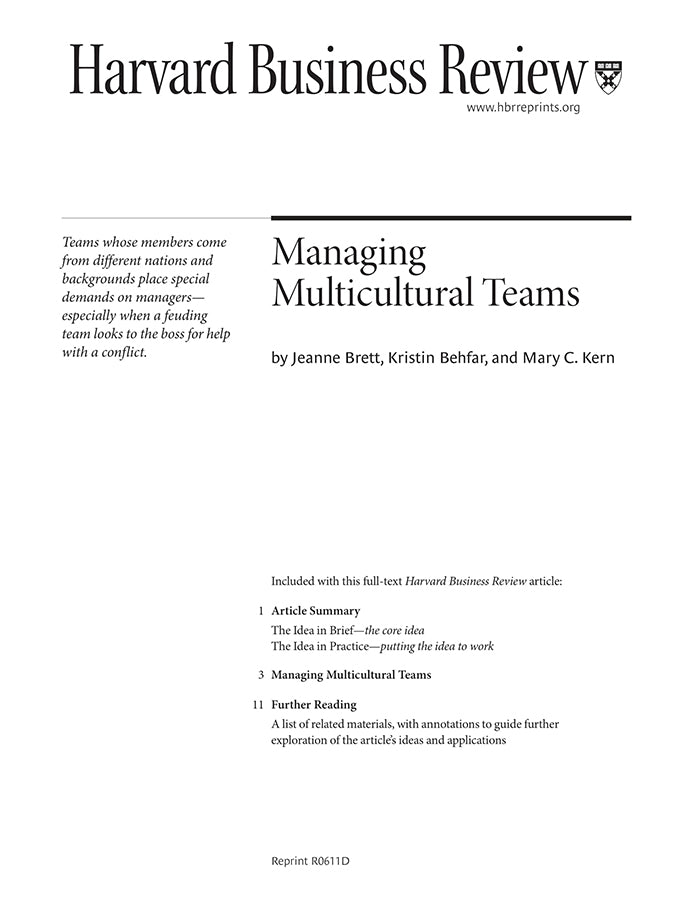Managing Multicultural Teams
受取状況を読み込めませんでした
This article includes a one-page preview that quickly summarizes the key ideas and provides an overview of how the concepts work in practice along with suggestions for further reading. Multicultural teams offer a number of advantages to international firms, including deep knowledge of different product markets, culturally sensitive customer service, and 24-hour work rotations. But those advantages may be outweighed by problems stemming from cultural differences, which can seriously impair the effectiveness of a team or even bring it to a stalemate. How can managers best cope with culture-based challenges? The authors conducted in-depth interviews with managers and members of multicultural teams from all over the world. Drawing on their extensive research on dispute resolution and teamwork and those interviews, they identify four problem categories that can create barriers to a team's success: direct versus indirect communication, trouble with accents and fluency, differing attitudes toward hierarchy and authority, and conflicting norms for decision making. If a manager--or a team member--can pinpoint the root cause of the problem, he or she is likelier to select an appropriate strategy for solving it. The most successful teams and managers, the authors found, dealt with multicultural challenges in one of four ways: adaptation (acknowledging cultural gaps openly and working around them), structural intervention (changing the shape or makeup of the team), managerial intervention (setting norms early or bringing in a higher-level manager), and exit (removing a team member when other options have failed). Which strategy is best depends on the particular circumstances--and each has potential complications. In general, though, managers who intervene early and set norms; teams and managers who try to engage everyone on the team; and teams that can see challenges as stemming from culture, not personality, succeed in solving culture-based problems with good humor and creativity. They are the likeliest to harvest the benefits inherent in multicultural teams.
【書誌情報】
ページ数:16ページ
サイズ:A4
商品番号:HBSP-R0611D
発行日:2006/11/1
登録日:2012/3/28


